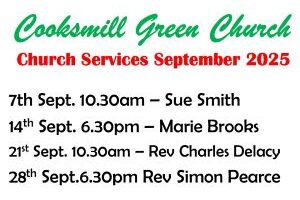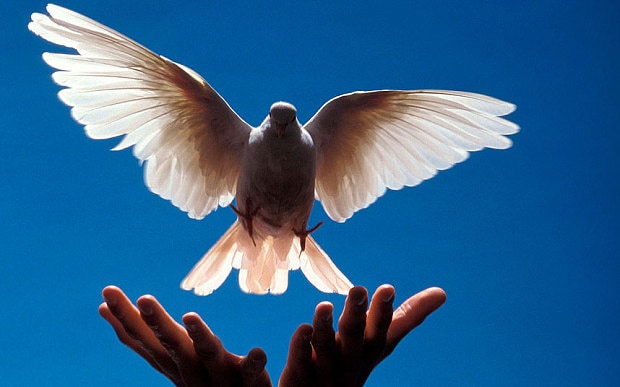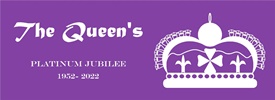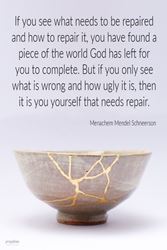Thought for the Month October 2022
God, where are you in all this?
There seems to be nothing good going on in the world anymore don’t you think? When you watch the news, read the newspaper or overhear a polite conversation, the status quo is one of doom and gloom. We have the war in Ukraine, numerous natural disasters due to climate change, the death of the Queen, our economy in crisis, a government in chaos, energy and food costs spiralling, and it goes on, doom and gloom that begins to suffocate our every waking moment. The rich seemingly get richer and of course the poor even poorer, there seems such an injustice at the hardships some face right now and it’s only going to get worse what with the volatile and uncertain future that is predicted. So, with an almost apocalyptic overview of current affairs, it wouldn’t seem too churlish to ask, “where is God in all of this?”
It seems to me that when life is good, with little or no hardship, where contentment makes us feel secure and fortunate, it is then that Christian faith itself can also become a reflection of how we choose to relate to God, when we are on the up. If all is well in our lives, then it must be that God is clearly being benevolent with both his grace and blessings, and so we are of course full of thanks and praise for what He gives us, for making our life good, and in that moment, we may find ourselves having a Christian faith that is clearly both a good thing to possess and a relatively easy mission to live. However, we are not living in such times right now and even if we don’t feel personally at risk from it, we surely cannot fail to see the extreme predicament others now find themselves facing. So, should we assume then that as times have now turned difficult, that God has abandoned us? Is he perhaps punishing us for indulging too much in the good times? Have we done something to offend Him? Why is He allowing this to happen? God, where are you in all of this!?
Have you noticed that whenever a politician or leader is asked why these things are happening, they are always looking to blame someone or something else? Do you think it’s human nature to always hit out in anger and frustration when things start getting tough, blaming others rather than looking for a solution within? I do also wonder that as things begin to get worse, as it surely seems they will, and when we may begin to struggle to obtain the basic provisions of a normal life such as food, warmth and shelter, that the blame game will see God in the firing line once more. Will our faith begin to falter with doubt, will we find ourselves repeatedly exclaiming “God where are you in all of this!?”
The trouble with faith is that its definition asks a lot of us, and I mean the one that Paul gave us in his letter to the Hebrews (11:1) Faith is the assurance of things hoped for, the conviction of things not seen.”. It’s that conviction that gets tested when the doubts creep in because it’s based upon the doctrine of scripture, the testimony of those no longer living and a spiritual connection that cannot be evidenced beyond our own internal experience of it. What that definition is really asking of us is to have confidence and trust in God without setting parameters as to what that should look like, whether life is good or especially when life is at its worse, you accept faith for Paul’s definition and nothing else, that’s what makes it challenging at times and that is the true nature of faith.
So just how do we deal with the challenge of a tested faith or with the everyday anxiety of what is coming next for both us and those that we love (or not)? Well I think one way for certain is that we must have trust and confidence in God’s love for us, that whatever difficulties we face, we feel assured that He is with us always, that all the suffering, pain, heartache, loss and anger that we may experience can be given over to Him in any way you choose, be it a prayer or a fiery rant, He loves us too much to care how you do it and that is why we are never alone in our trials and with Him we always have hope.
The reading I chose is one I use frequently when life gets tough, as I find the metaphors that Paul uses give spiritual sustenance, strength and courage to face the hardships of life, using what God actually does give us every single day, though sometimes we might lose sight of them. Let’s not ask God nor to expect Him, to do all the work in sorting out the wrongs that we have created but instead, ask Him to be at our side and guide us towards the solution so that we might find ourselves saying “God, I see you in all this now”.
Amen.
Danny.
Paul’s Letter to the Ephesians. Ch6 v10-18
Finally, be strong in the Lord and in his mighty power.Put on the full armour of God, so that you can take your stand against the devil’s schemes.For our struggle is not against flesh and blood, but against the rulers, against the authorities, against the powers of this dark world and against the spiritual forces of evil in the heavenly realms. Therefore, put on the full armour of God, so that when the day of evil comes, you may be able to stand your ground, and after you have done everything, to stand. Stand firm then, with the belt of truth buckled around your waist, with the breastplate of righteousness in place, and with your feet fitted with the readiness that comes from the gospel of peace.In addition to all this, take up the shield of faith, with which you can extinguish all the flaming arrows of the evil one.Take the helmet of salvation and the sword of the Spirit, which is the word of God.
And pray in the Spirit on all occasions with all kinds of prayers and requests. With this in mind, be alert and always keep on praying for all the Lord’s people.
A Prayer for Courage
Dear Heavenly Father, thank You for Your promise to be with me wherever I go. When I am tempted to doubt and fear, help me remember that You are with me. In light of this promise, may I choose to be strong and courageous no matter what I am facing. In Jesus’ Name, Amen.











